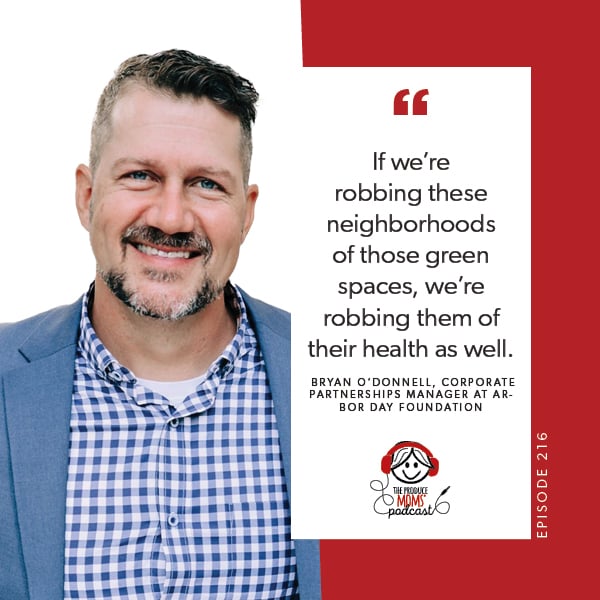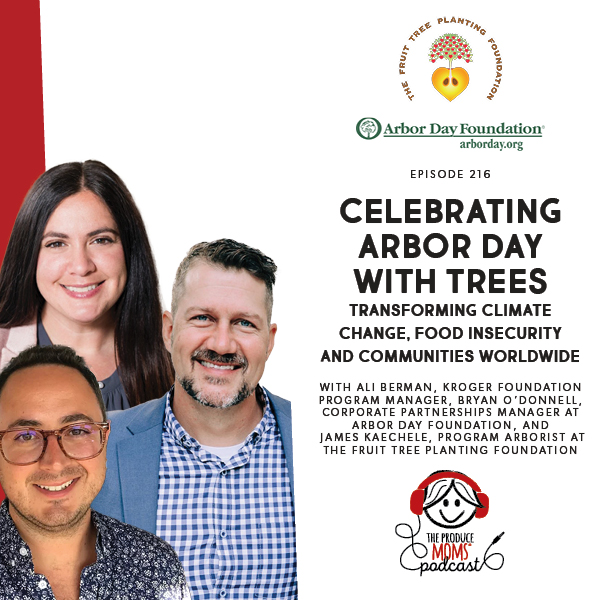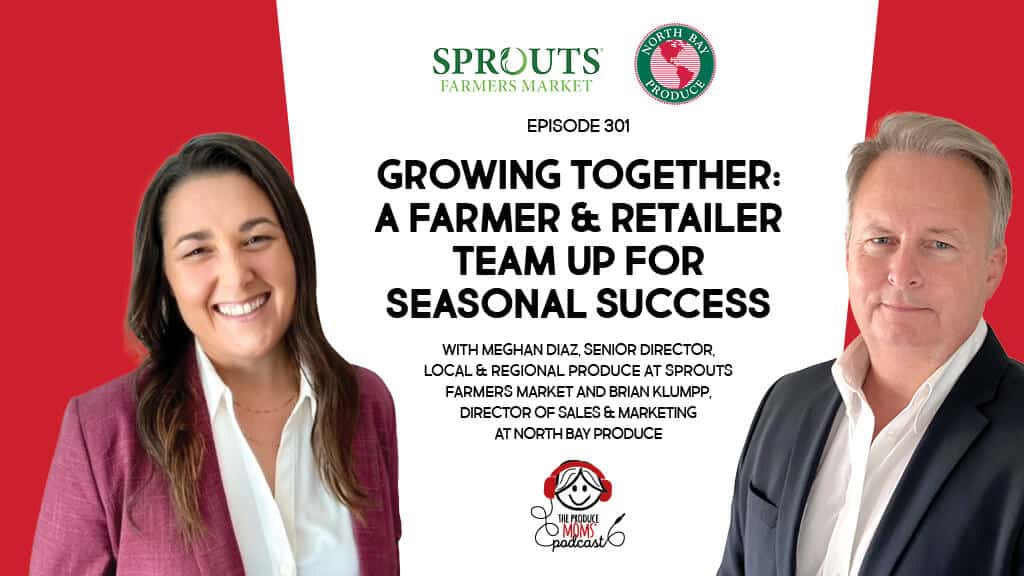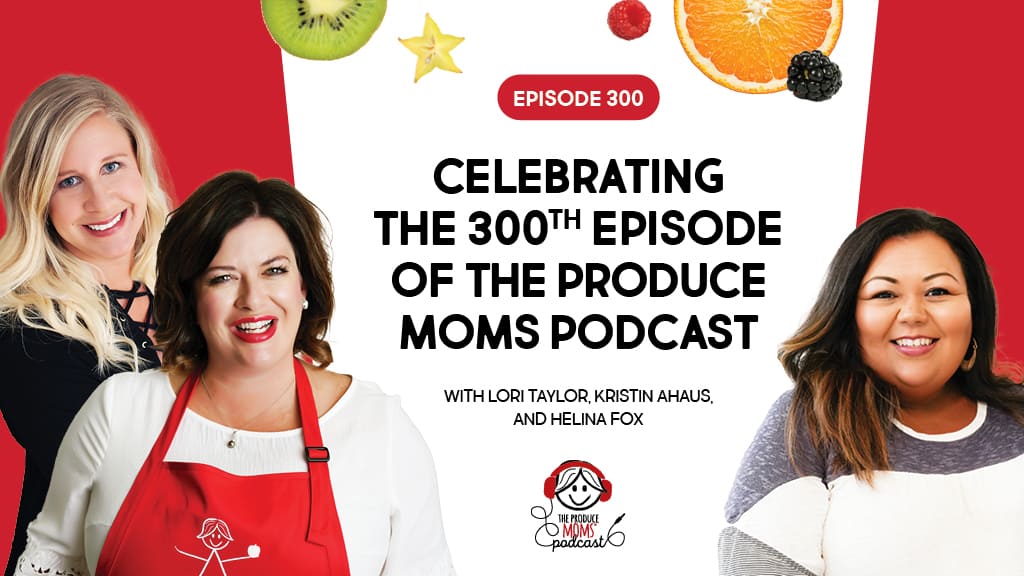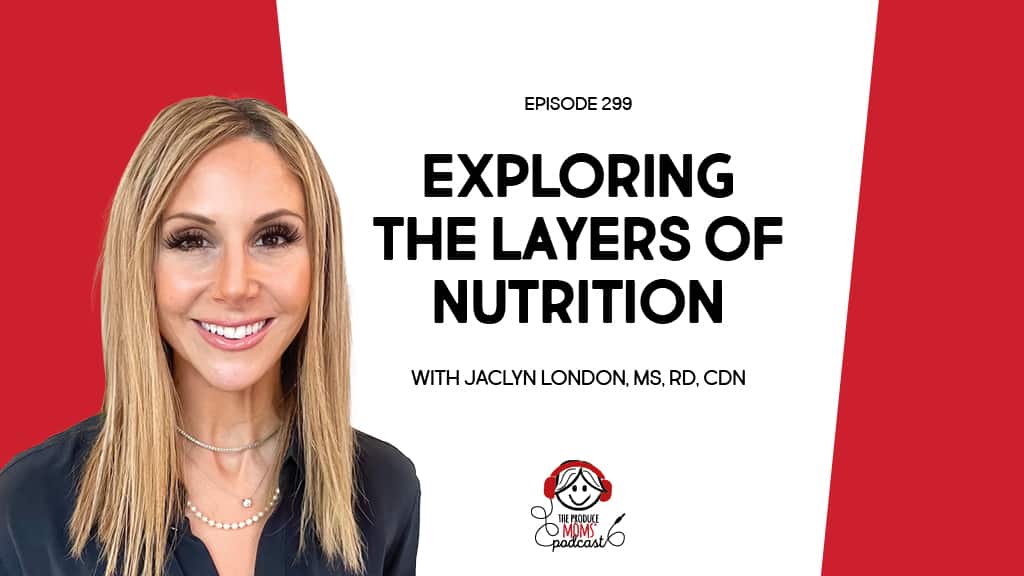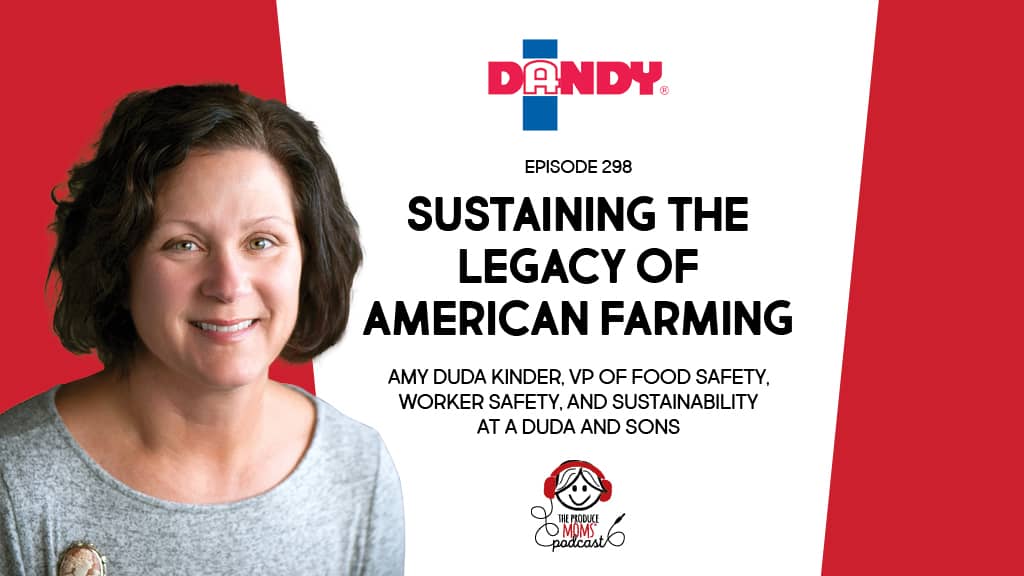Episode 216: Ali Berman, Bryan O’Donnell, and James Kaechele
Apr 29, 2022
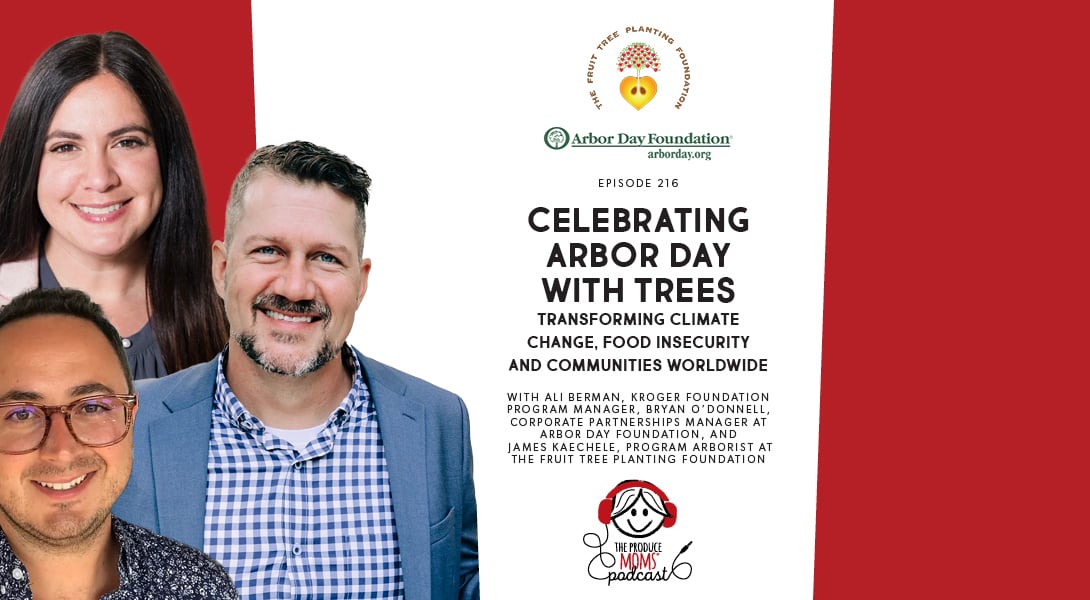
This post may contain affiliate links. Please read our disclosure policy.
What does planting trees have to do with helping reduce the daily food insecurity 38 million people around the world experience? Not only is there a huge correlation between communities that are low-income food deserts and a lack of trees, but just by planting one fruit tree you could be feeding families healthy produce for over 50 years!
Kroger’s public charity called the Zero Hunger Zero Waste Foundation (founded in 2018) supports organizations and innovators across the country who share the same vision of helping everyone around the world have access to affordable, nutritious food. They’ve connected with the Arbor Day Foundation, who’s helped plant and distribute 500 million trees in over 50 countries to help bring shade, and food and beautify communities that need it most. The Fruit Tree Planting Foundation is also on the same mission, planting fruit trees in communities around the world with the goal of planting 500 million trees in the next five years. Arbor Day may not be something you pay too much attention to, but trees can help solve so many of our issues, from sustainability challenges, carbon emissions, creating communities free of hunger, eradicating heat waves, developing resilient communities, and beautifying spaces and so much more! An issue that correlates to food insecure or food desert communities is “heat islands”, areas of cities that lack trees or green spaces. As we know, heat waves exacerbate other natural disasters and increase health issues (even death). With enough trees in these areas, some cities cooldown by up to 10 degrees, and the trees also clean air, provide oxygen, absorb carbon and clean the water where it’s needed most.
“More and more we’re having the conversation about climate changes and all the different things trees have solutions for. We’re seeing where once trees might have been a ‘nice to have’ in the neighborhood and we’re realizing they’re a ‘must have’.” Bryan O’Donnell (5:51-6:04)
The work the Fruit Tree Planting Foundation is doing is making incredible strides toward reducing food insecurity by planting fruit trees around the world. Arborist James Kaechele, part of the FTP, reminds us just how incredible it is to think how someone, for example, brought fig tree seeds all the way from their home in Italy, immigrated here, and planted a fruit-producing tree in his backyard of Queens, New York that has been feeding people for decades. The FTP has worked with the Havasupai Tribe located at the base of the Grand Canyon to help create the first town in the country where every family has a fruit tree in their backyard.
“We’re able to work with these awesome, local community folks who are hungry, literally, for more fresh produce, and they’re going to do all kinds of things to make sure those trees get watered and cared for the decades to come.” James Kaechele (22:39-22:53)
James mentions the most difficult part of creating orchards or Agri-parks (like in Fishers, Indiana) is the initial step of transporting and planting trees in these communities. The funding and partnership work from Kroger’s Zero Hunger Zero Waste Foundation is playing a huge role in making this movement possible. Customers who shop at Kroger can donate to the foundation which is helping develop urban orchard projects and ensure the communities that need trees the most are receiving them. Trees provide essential shade, beautification, food, and resilience and are a great way to educate and bring people together, enjoying nature and each other. 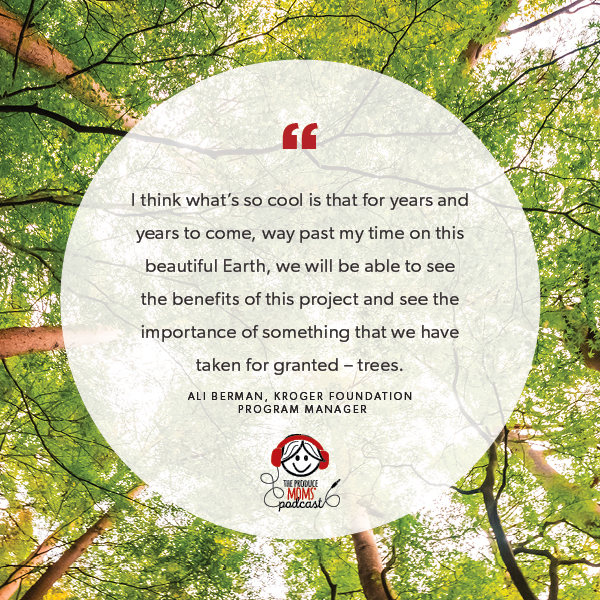
How to get involved
- Join The Produce Moms Group on Facebook and continue the discussion every week!
- Reach out to us – we’d love to hear more about where you are in life and business! Find out more here.
If you liked this episode, be sure to subscribe and leave a quick review on iTunes. It would mean the world to hear your feedback and we’d love for you to help us spread the word!
Previous episodes you may enjoy
